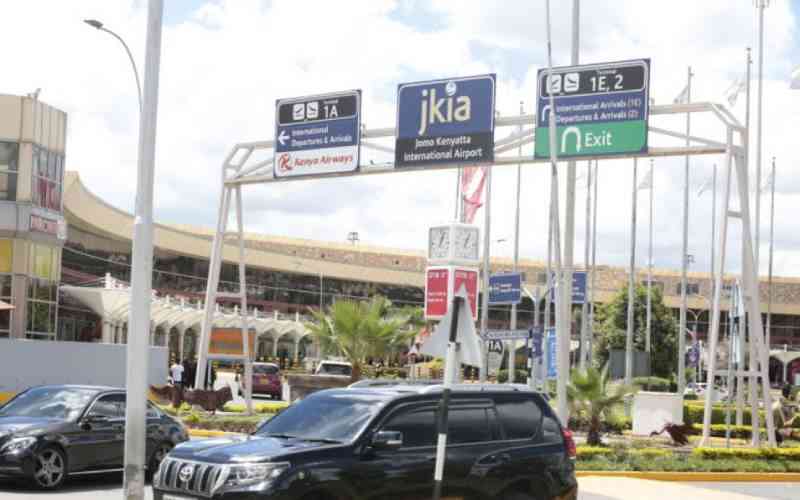Corruption sucks out 250,000 jobs
By MOSES MICHIRA
Kenya is losing over a quarter a million jobs every year to corruption, with employers in both private sector and the Government spending over Sh104 billion that could be directed to create positions paid as kickbacks to get things done.
A World Bank report reveals that the amount of money lost through corruption-related deals could pay salaries for about 253,000 workers, almost equal to the number of fresh graduates unable to find jobs every year.
The damning findings are contained in the ‘Kenya Economic Update 2012’ report, which is the first survey detailing the cost of corruption on job creation, amidst unemployment rates estimated at 40 per cent.
“If firms were able to redirect all the funds they use for bribes to salaries, they could hire almost every young unemployed Kenyan,” reads part of the report released earlier this month. With only two in five persons in the active age bracket of 15-64 being in employment, the findings suggest that corruption could easily be the biggest challenge in the clamour to create jobs.
Dozens of unemployed youth interviewed by the World Bank revealed that they had been pushed into rent-seeking activities that do not utilise the skills gained from their education.
- .
Keep Reading
- Judge orders ex-KeRRA manager to forfeit Sh500m property

- New gaps as Sh17 billion oil cargo saga deepens

- Courts should interpret Chapter 6 to protect Kenya from graft, impunity

- 74 public servants suspended for alleged misconduct

“I am a broker so I work on the highway. If I get people who want to sell say cereals or diesel I get a buyer for them,” reported the World Bank on a young man in Nakuru who calls himself a ‘hustler’ owing to the kind of informal jobs he does to earn a living.
“If a lorry breaks down and they want people to load cargo to another, we are there. Being a hustler you do not select the type of work you do, just what brings you some daily bread. Oh yes and I also do DJ part time.”
His concerns are replicated amongst millions of other young people who have sought meaningful employments for years on end, even after attaining at least some college qualification.
The private sector is the biggest contributor to the overall bribes paid either to government officials or other companies, spending about Sh69 billion to ‘get things done’ and win contracts.
It is estimated that the payment constitutes four per cent of the Sh1.7 trillion of the value of trade that originates from privately owned firms.
It is a paradox, however, that it is firms in the private sector that are expected to generate the bulk of the modern jobs, which can utilise the skills earned from higher education such as accounting and food processing.
The inability for the private sector to create jobs has pushed some prospective employees into enterprenuers, mostly dealing in small businesses that are also slayed in part by corruption.
A few of the young people who can not find jobs or engage in business end up in illegal activity like crime or downrightly demeaning sex trade.
Most of the college graduates engagaged in some activity to earn a wage feel underemployed and underpaid. “I aspire for a better future with a well-paying job as a senior driver (earning above Sh15,000) so that I can afford basic needs, own a house and (provide) better education for my children,” said an unemployed young man in Mombasa, also interviewed by the World Bank.
Stay informed. Subscribe to our newsletter
Peter Kahi, a partner in charge of Fraud Investigation and Dispute Services at Ernst & Young, Kenya says the World Bank’s estimate on the money lost to corruption by the private sector was an understatement.
“Companies lose between 7 and 8 per cent of their revenues to corruption, which translates to millions of jobs lost every year,” said Mr Kahi, whose firm has carried out surveys on the level of corruption among corporate entities globally.
In its last report released in July, Ernst & Young found out that more than half of Kenya’s top business executives had either given or would readily give bribes to retain or win new business.
World Bank’s report also estimates that about 12 per cent of the Sh298 billion in public sector expenditure is lost to corruption through inflated procurement expenses, translating to Sh35 billion.
The amount could be used to employ some 83,000 teachers, each earning Sh35,000 – which is above the country’s average pay.
While unemployment remains the biggest challenge for the State and a campaign tool in Presidential debates, it could be worth re-examining where the real problem in job creation lies.
- Like it or not, being single is not fun
- Is male menopause a myth or reality? Here's what the experts say
- Brace for IMF bitter medicine as Kenya inks another Sh103b loan
- MPs query state officers' oversight role as budget up by Sh187 billion
- Businesswoman in oil import conflict pledges to honour House summons
Trending Now
-
.
Popular this week
- Baringo scientists discover 300,000-year-old tools
- Maraga-led taskforce recommends 40pc pay rise for police during final report handover
- Kenya's quest to host Africa's payments system takes longer
- We must make tough decisions for better Kenya, President Ruto says
- Judge orders ex-KeRRA manager to forfeit Sh500m property
 The Standard Group Plc is a
multi-media organization with investments in media platforms spanning newspaper
print operations, television, radio broadcasting, digital and online services. The
Standard Group is recognized as a leading multi-media house in Kenya with a key
influence in matters of national and international interest.
The Standard Group Plc is a
multi-media organization with investments in media platforms spanning newspaper
print operations, television, radio broadcasting, digital and online services. The
Standard Group is recognized as a leading multi-media house in Kenya with a key
influence in matters of national and international interest.




